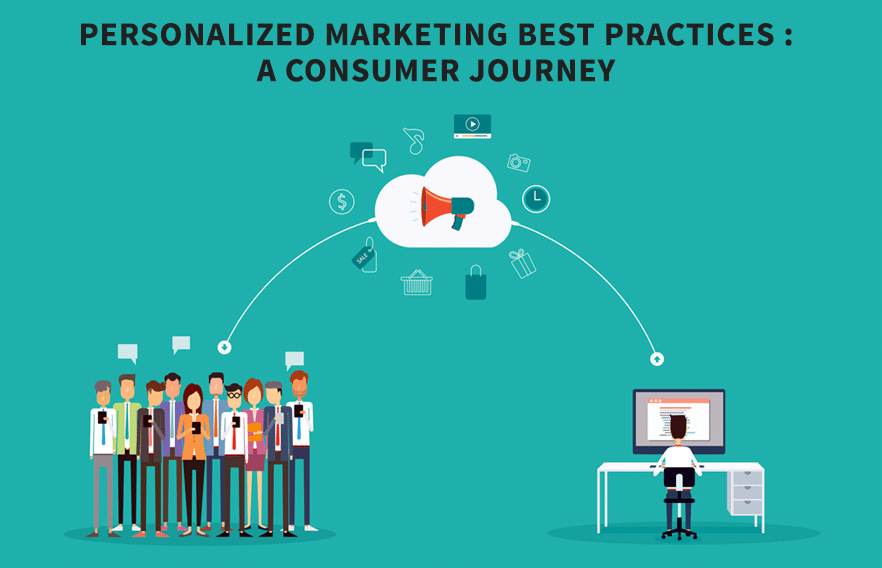Personalization strategies in marketing

In an era where customer preferences and expectations are ever-evolving, employing a robust personalization strategy in marketing has moved from being a luxury to a necessity. In this blog, we explore various facets of crafting a successful approach to customized interactions, enhancing customer experiences while driving business growth.
This journey into the art of personalization will take you through understanding its importance, strategic application, and the innovative technologies that make it possible. Prepare to transform your marketing efforts into a personalized powerhouse that resonates with your audience on a deeper level.
Understanding the Essence of Personalization
At the heart of personalized marketing is the deep-rooted understanding of your customers' needs, interests, and preferences. This approach involves tailoring your communications, offers, and experiences to meet the unique desires of each individual, rather than addressing your audience as a homogeneous whole.
Statistics consistently show that personalized marketing strategies bolster customer engagement, enhance brand loyalty, and significantly increase conversion rates. But achieving these benefits requires more than just addressing your customers by name.
It demands a comprehensive analysis and segmentation of your audience, leveraging big data and artificial intelligence (AI) to understand and predict customer behavior in a genuinely impactful way.
Strategies for Implementing Personalization
The first step towards personalization is data collection and analysis. Tools and platforms that can track customer behavior across various touchpoints are invaluable in painting a complete picture of your audience’s preferences.
Following this, employing AI and machine learning technologies can automate personalized content delivery, ensuring that the right message reaches the right person at the optimal time. However, personalization isn't just about technology; it's equally about the human touch. Crafting personalized experiences that feel genuinely thoughtful and tailored requires creativity and empathy.
Furthermore, privacy concerns should always be top of mind. Transparent communication about data collection practices and giving customers control over their information are essential practices to build trust and compliance with regulations.
Technological Innovations Behind Personalization
Data analytics, AI, and machine learning are at the forefront of enabling effective personalization. These technologies can analyze vast amounts of data in real-time, predicting customer behavior, and facilitating personalized interactions at scale.
Emerging trends also include the use of chatbots for personalized customer service engagements and augmented reality (AR) experiences that customize the user's environment to their preferences. These innovations not only enrich the customer experience but also set a new standard for what personalized engagement can look like.
Moreover, blockchain technology is beginning to play a role in personalization by providing a secure way of handling consumer data, enhancing both personalization efforts and data privacy simultaneously.
Real-World Applications of Personalization
Retail giants like Amazon and Netflix have famously leveraged personalization to remarkable success, using recommendation engines to suggest products or content based on past behavior and preferences.
In the B2B sector, personalized marketing approaches include customizing email communications based on the recipient's industry, role, or past interactions with the brand, significantly improving open rates and engagement.
Healthcare is another field where personalization is making strides, with personalized medicine and patient care plans based on individual health data leading to better patient outcomes and satisfaction.
Challenges and Considerations
While the benefits of personalization are clear, marketers must navigate challenges such as data privacy concerns, the resource intensity of implementing personalized strategies, and ensuring personalization efforts are seamless and unobtrusive to the customer experience.
An over-reliance on automation can also lead to impersonal or even invasive experiences if not balanced with genuine human insight and oversight.
Future of Personalization in Marketing
The future of personalized marketing is bright, with continuous advancements in technology providing even more opportunities to connect with customers in meaningful ways. However, as capabilities expand, so too does the complexity of successfully implementing these strategies.
Brands that can navigate these waters effectively, continually adapting and evolving their approach, will be well-positioned to thrive in the competitive landscape of tomorrow.
In conclusion, personalization is not just a trend but a fundamental shift in how companies approach marketing. By focusing on the individual needs and preferences of each customer, businesses can unlock unprecedented levels of engagement and loyalty. As we move forward, the successful integration of technology, strategy, and empathy will be key to realizing the full potential of personalized marketing efforts.

Related